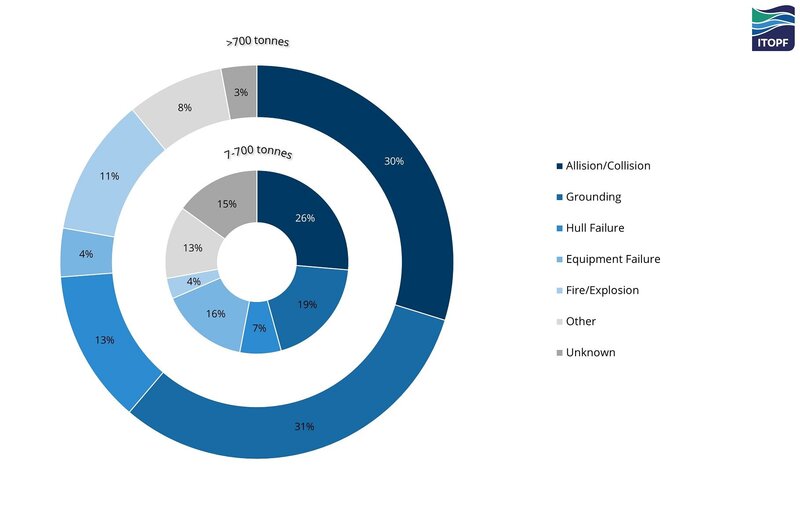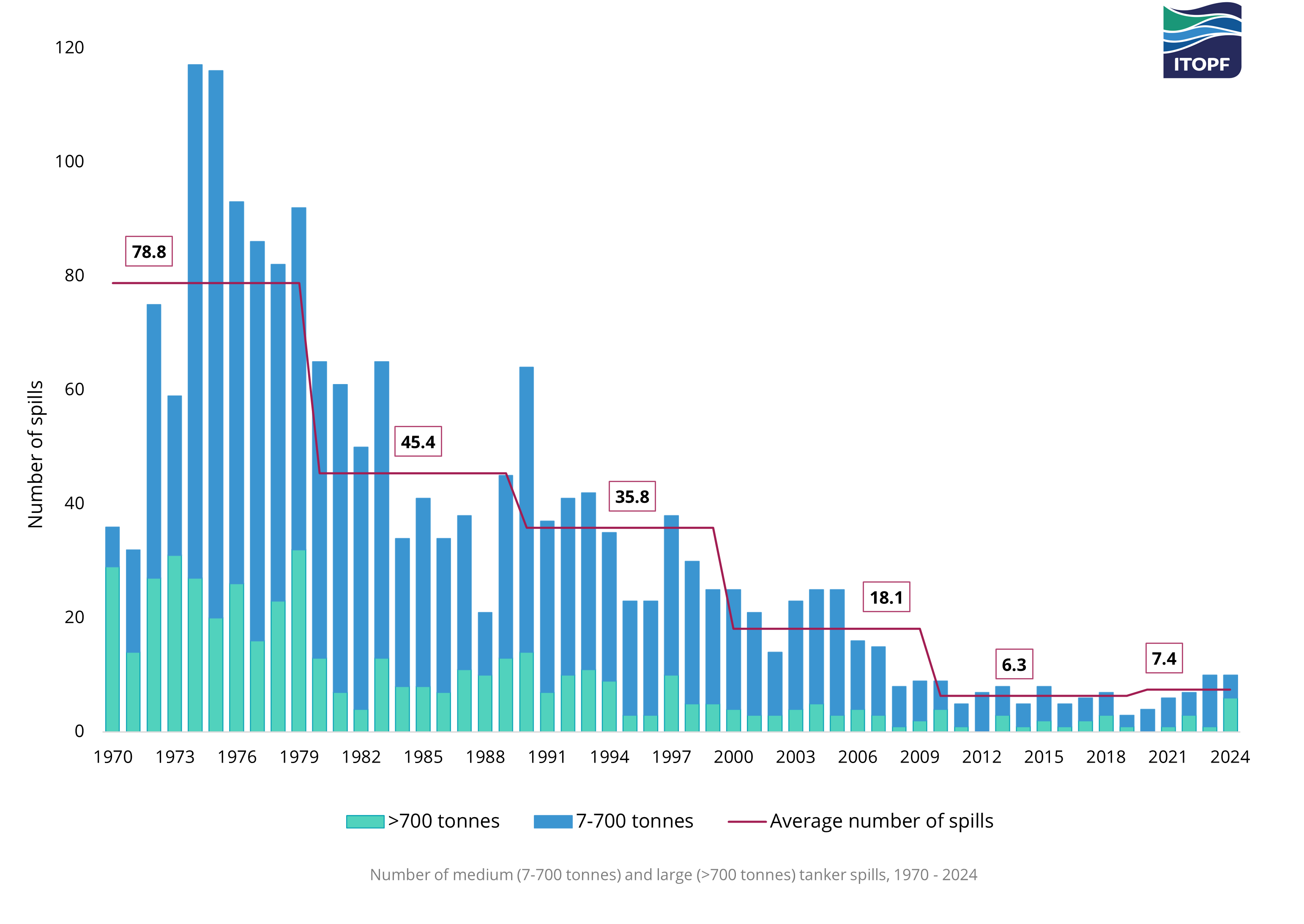Ten oil spills of more than seven tonnes were recorded from tanker incidents in 2024, the same number as in 2023, according to ITOPF statistics.
According to the data, this brings the decade average to 7.4 tanker spills per year, which is a major reduction from the numbers reported in earlier decades but currently slightly higher than the average for the 2010s (6.3 spills per year).
Furthermore, six of the ten incidents in 2024 resulted in spills greater than 700 tonnes (classified as ‘large’ spills). These mostly involved spills of fuel oil and occurred in South America, Asia and Europe. The four other incidents (classified as ‘medium’ spills) also involved spills of fuel oil. Additionally, two occurred in Europe, one in Asia and one in North America.
Global oil spill trend
Spill frequency
Over the past half century, statistics for the frequency of spills greater than 7 tonnes from tankers have shown a marked downward trend. Spills in excess of 7 tonnes have reduced by over 90% since the 1970s. There has however been little change in the last decade.
A quarter of all spills recorded over 7 tonnes are large (>700 tonnes). More than half of these large spills (51%) occurred in the 1970s.
Causes of tanker spills
Most oil spills (>7 tonnes) recorded between 1970 and 2024 were caused by Allisions/Collisions and Groundings.

In 2024, approximately 10,000 tonnes of oil were lost to the environment due to tanker spills. While this estimate is higher than last year, it still represents only a small fraction of the total oil transported by sea annually.
Despite some fluctuations, ITOPF’s statistics show that both the number and volume of oil spills from tankers have largely stabilized at a low level. This trend reflects the positive impact of efforts by the shipping industry and governments to improve tanker safety and operational standards.
However, accidents remain a possibility, making it essential to maintain these commitments to ensure the ongoing protection of the marine environment.




























































